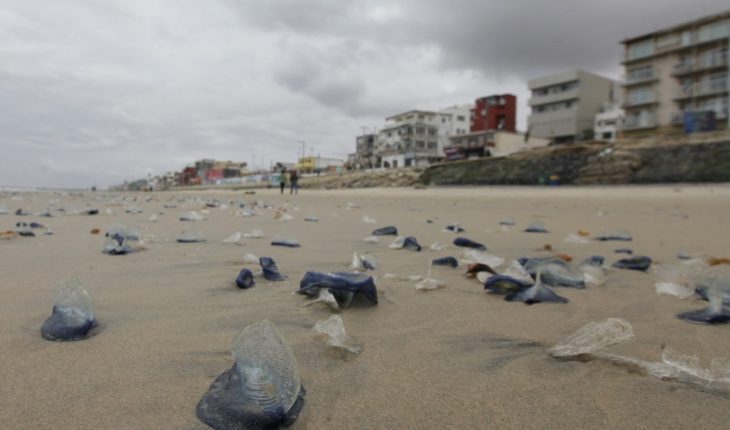after completing a “strategic assessment” to the national policy on climate change between 2015 and 2018, the National Institute of ecology and climate change concluded that the public bodies created to address this phenomenon do not exercise their powers, nor track few action for mitigation and adaptation, and the Federation “has not developed a strategy in coordination with the orders of the Government State and municipal”to deal with the problem.
The results of the assessment against climate change policy (published on February 5 in the official journal of the Federation) reveal, for example, that the two agencies created by the federal authorities to coordinate actions against this phenomenon, who are the national system and the inter-ministerial Commission on climate change, they have not met this coordinating function, therefore, “the execution of the different government actions identified by the evaluation are far from forming a policy systematic”.
Read: Climate change: from 2015 to 2018, age 4 warmer history this lack of a common vision at all levels of Government, and all the institutions involved in climate change adaptation and mitigation actions, highlights the evaluation, not only It represents a violation to the General Law in the matter (effective from 2012), but also to the Paris agreement and the objectives of sustainable development, international instruments seeking to face this problem at the global level, and that Mexico has joined formally.
One of the main problems facing Mexico to generate and implement a policy for mitigation and adaptation to climate change, highlights the evaluation, is the lack of information on the subject, and that, even if there are some “progress” at the federal level, in the State level there are difficulties to access this and, at the municipal, such information is “practically inaccessible and non-existent”.
An example of this lack of a common policy, and information of quality in the field of climate change, says the evaluation, is that of the Comisión Federal de Electricidad, productive enterprise from the Mexican State which is ignored if included or not environmentally friendly methods with the environment, which do not contribute to climate change, at its power generation operations.
In the same measure, says the evaluation, “it is not possible to know the emissions” polluting industry of electricity generation in Mexico.
In ruins there are several examples of the lack of coordination between the bodies responsible for mitigation and adaptation to the effects of climate change, in the assessment made by the National Institute of ecology and climate change, some of which they come even to the ridiculous.
One of them is the tools of monitoring that the authorities of previous administrations, created to learn about the effects of their policies on the matter.
These tools, says the study, are the registration of releases and transfers of pollutants and the national registry of emissions of Gases and compounds of greenhouse (RENE).
The problem with these assessment instruments is that the registration of releases and transfers of pollutants operated for more than one decade (between 2004 and 2016) and then was suspended and replaced by RENÉ, while the responsible authorities envisage a form of combining the data of two databases.
Worse still: the evaluation highlights that after making this change in the system of register of emissions, in 2016, these data ceased to be available to the public.
Along the same lines, the evaluation of the National Institute of ecology stands out that Mexico also has reliable information systems that allow you to know what the actual volume of solid waste generated urban conglomerates in the country, to such a degree that “the federal entities have information other than that provided federal authorities.”
Read: The Government wants to eliminate landfills to replace them with banks of materials and compost plants another one of those examples is that of the different air quality existing programmes in States, or in specific cities, which do not keep “none” relationship with the national climate change policy, even though the main source of greenhouse gas emissions is transportation.
Linking climate change policy and the policy of transport in Mexico “is virtually non-existent”, concluded the study, and this problem through the three levels of Government: while in the federal sector program order of Communications and transport does not consider the impact of these bouquets in the climate change at the State and municipal levels the situation worsens, because there are even programs in the field of transport.
The assessment made by the National Institute of ecology and climate change also recognizes that not all the problems are due to lack of coordination and regulations.
There are also examples of some specific actions that were established to mitigate climate change, but which were then omitted or openly cancelled by the responsible authorities.
“The General Law of climate change – points evaluation – mentions that by the year 2018, municipalities, in coordination with the federal entities and other administrative and financial bodies, and with the technical support of the Sedesol, develop and build the” infrastructure for the management of solid waste, non-emitting methane into the atmosphere, without that this action has been carried out”.
In addition, says the document, “found evidence of the lines of action of the special program of climate change 2014-2018, related to solid waste, were cancelled” by the State, federal, and municipal authorities.
In the period 2014-2018, recognizes the evaluation of the National Institute of ecology, “lean budget support of the Federation” was in buy crew to collect trash, but not undertaken “actions that lead to reduce, minimize and recycle, neutralize or valorise waste.”
“Full ignorance
the poor results of the policy on climate change in Mexico from 2012, when the general law on the subject gained force, come to such a degree that there is not even a common language in terms of concepts such as” vulnerability”,”resilience”or”adaptation”.
In Mexico, he concluded the evaluation of the National Institute of ecology, prevails the notion of risks associated with civil protection, but in government bodies not has permeated, in parallel, the idea of “risks present and future climate change”.
In fact, the national Ecology Institute reported that during their assessment “not found evidence” that the risks and damages associated with climate change “are fully understood by the concerned authorities, nor by the responsible authorities”, by the which are often associated with reforestation and protection of areas with actions for adaptation, without even considering other factors widely affecting climate change, such as poverty.
Thanks for reading! Help us to continue with our work. How? You can now subscribe to political Animal on Facebook. With your monthly donation, you will receive special content. Find out how to subscribe here. Check our list of frequently asked questions here.
translated from Spanish: Climate change policy has failed: Institute of ecology
February 6, 2019 |





